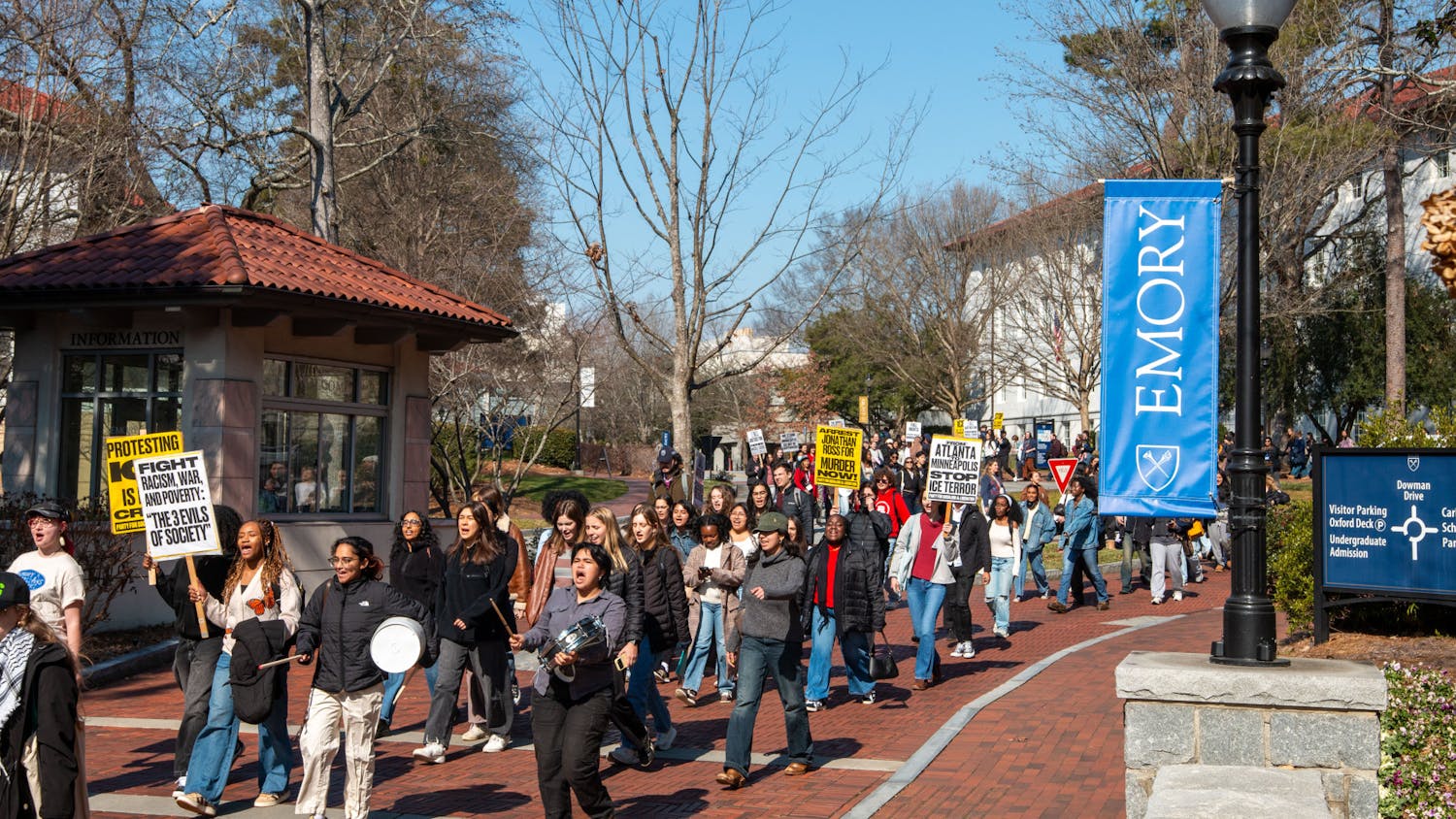Five top student government positions are uncontested this election cycle, with a single candidate running for Graduate Student Government Association (GSGA) president, Student Government Association (SGA) vice president, College Council (CC) president, CC vice president and RHA president. The SGA president race is a run-off between SGA outsider Nilang Shah (18C) and current SGA Executive Vice President Gurbani Singh (18B). Candidates Jim Kwon (20G) and Vineet Tiruvadi (19M), both of whom have never served on GSGA, are competing head-to-head for GSGA vice president.
The campaign period for SGA, CC, RHA and BBA began March 21 at midnight, and the voting period begins March 28 at 8 p.m. and closes March 31 at 8 p.m. The GSGA campaign period began March 21 at 11:59 p.m., and voting will start March 22 at 8 a.m. and finish March 24 at 8 p.m.
SGA
This election cycle marks the first time candidates for SGA president and SGA executive vice president will campaign together on a party ticket. SGA amended the Code of Elections in 2015, allowing presidential and vice presidential candidates to share campaign materials and run on the same ticket starting in 2016. The two-year-old provision has not been utilized until this year.Singh and Natasha Armstrong (18B) are campaigning together for SGA president and SGA executive vice president, respectively. The two have served on SGA since their freshman year. Singh served most recently as SGA executive vice president and Armstrong as representative-at-large.
Singh hopes to establish a “bottom-up” student culture to give undergraduate divisional councils and students more autonomy, according to her platform. Armstrong’s platform emphasizes supporting voices of underrepresented students.
Singh said she and Armstrong decided to campaign together after working closely on SGA, especially this past year during the split bill when they would “bounce” ideas off each other.
“I’m confident that we work well together … she really challenges me,” Singh said. “I don’t think it’s good to have a vice president and president that have all the same ideas … because no one’s challenging you, no one’s asking you to think.”
With no previous experience with Emory’s student government, SGA presidential candidate Shah is running as an outsider. Shah said he was inspired to run despite his lack of SGA experience because he wanted to create legislation that would directly address students’ needs.
His platform aims to support campus diversity by pushing for the formal declaration of Emory as a “sanctuary campus,” an increased number of shuttle routes and greater cooperation between SGA and other student-run organizations.
GSGA
Only two of GSGA’s officials are elected: the president and vice president. Although GSGA presidential candidate Mark Neufeld (18B) was originally running against Christopher DeVore (19PH), DeVore dropped out of the race March 21.DeVore is a Rollins School of Public Health representative on GSGA. He did not respond to request for comment on why he decided to withdraw by press time.
Currently a Goizueta Business School Representative on GSGA, Neufeld said he hopes to create more cross-divisional GSGA facilitated events, lengthen shuttle hours and “embed Emory students into the fabric of the Atlanta experience.”
Contending in the GSGA vice presidential arena: Tiruvadi, who was elected Laney Graduate Student Council senator for the University Senate since 2015, and Kwon, who has no Emory student government experience but was elected undergraduate student government president at Randolph College (Va.) in 2013.
Tiruvadi proposed increasing GSGA’s role “in fostering a sense of social community across the University.” His opponent, Kwon, is pushing for increased GSGA involvement in school events, extended shuttle hours and addressing graduate student child care and housing.
CC
CC Vice President Cassidy Schwartz (18C) is running unopposed for CC president. Similarly, Naman Jain (18C), the current CC budget chair, faces no competition for the position of CC vice president.Schwartz plans to amend CC’s monetary policy by making funding more accessible for student organizations, unify the Oxford and Atlanta campuses and financially support low-income students, according to her platform.
With a background in student government financing after previously serving as assistant vice president of finance and his current position as CC budget chair, Jain plans on amending monetary policies and “piecing Emory’s diverse and cultural puzzle together.”
Students Call for Club Funding, Communication
The Wheel interviewed 30 random students from across all divisional schools and years on their voting preferences for the upcoming elections. Of those interviewed, 10 students planned to vote, 11 said they did not plan to vote and nine said they would vote if they had more information about the elections and the candidates.A few students expressed concerns that the upcoming elections’ results would affect club funding.
Max McCreary (18C) articulated his worries about the split affecting monetary policies for arts groups.
“The SGA split and monetary policy are the two facets of SGA and College Council that I’m most invested in, and they’re the only ones that I actually keep track of,” McCreary said.
Similarly, Ravi Doshi (18C) wanted the student government to increase accessibility to funding for student organizations.
“Honestly, [I want] nothing more than [SGA] just making it easier for students to get funding for clubs,” Doshi said.
Eric Yang (20C) said that he did not know when the elections were, and blamed SGA’s lack of communication for his disinterest regarding the votes.
“I feel like [SGA] should do a better job of informing people of what they do and how the elections work,” Yang said.
Michelle Lou contributed reporting.







